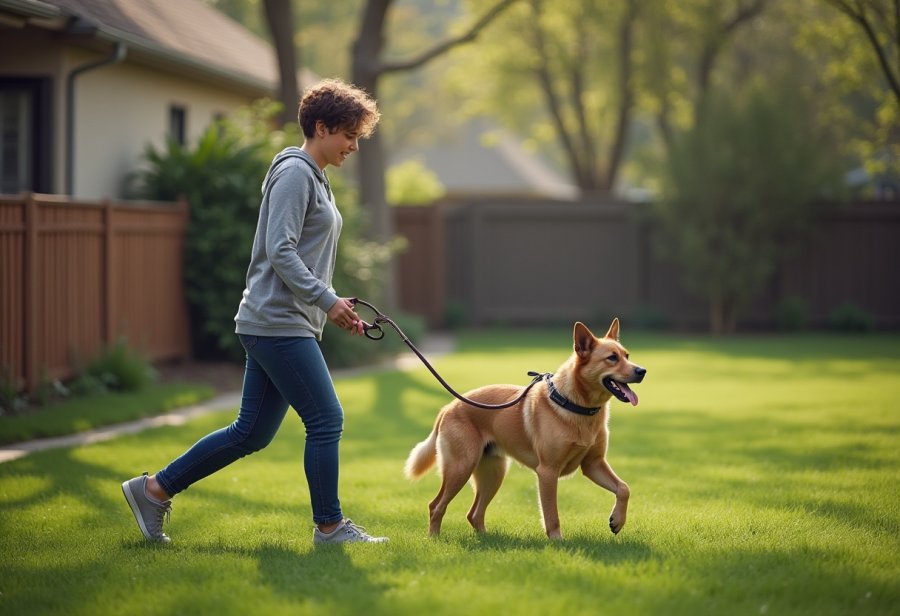Authentic friendships are built on trust, honesty, and vulnerability—elements that forge lasting bonds beyond superficial interactions. But can deep connections withstand the test of time amidst life’s inevitable changes? This exploration reveals that true friendship demands emotional honesty, patience, and consistent effort, transforming casual acquaintances into lifelong allies. Real stories illustrate how opening up about fears and struggles nurtures genuine support and resilience. In a digital age where surface-level interactions are prevalent, prioritizing meaningful, face-to-face or heartfelt exchanges becomes more vital than ever. The future of authentic friendship hinges on balancing technology with sincerity, fostering environments where vulnerability is welcomed and trust can flourish. Are you prepared to embrace the emotional risk involved? Because, ultimately, the depth of these bonds can profoundly enrich our lives—if we are willing to nurture the trust and patience they require.
Discover What Truly Makes Friendships Authentic and Lasting
Authentic friendships go beyond casual chats or surface-level interactions. They are rooted in trust, honesty, and mutual respect, creating a bond that feels genuine and lasting. Unlike fleeting acquaintances or social media connections that often stay at the level of small talk, these friendships involve a real understanding of each other’s true selves. They thrive on openness and vulnerability, where both friends feel safe to share their thoughts, fears, and dreams without fear of judgment. This emotional safety turns simple companionship into a meaningful connection that can stand the test of time.
What makes these friendships so valuable is their ability to foster personal growth and resilience. When friends are honest and open, they encourage emotional honesty that deepens the relationship. Trust and loyalty become the foundation, ensuring confidences are kept and support is unwavering, even during difficult moments. Building this kind of trust requires consistent effort—small acts like listening without judgment, respecting boundaries, and showing up when it matters most. Over time, these actions strengthen the bond, transforming casual acquaintances into true friends.
Deep connections in friendship do more than just provide companionship; they significantly impact our emotional health. Sharing openly with someone we trust can reduce loneliness, lower stress, and help us process complex feelings. When friends are genuinely honest and loyal, they create a safe space to be vulnerable, which in turn deepens the understanding and empathy between both parties. These bonds serve as a source of stability and comfort, reminding us that we’re truly seen and valued for who we are.
Vulnerability often feels risky, but it’s essential for genuine friendship. When friends share their fears, mistakes, or hopes, they break down barriers and foster a deeper sense of trust. This openness invites reciprocation, transforming acquaintances into trusted allies. Vulnerability isn’t about oversharing but about being honest enough to show your authentic self. When both friends embrace this, it creates a cycle of sincerity and mutual respect that makes the relationship more resilient and capable of enduring life’s inevitable challenges.
Building and maintaining authentic friendships takes ongoing effort and patience. Consistently showing up, being honest, and respecting boundaries create a foundation of trust that can weather life’s changes. Small, sincere acts—like checking in, offering support, or sharing a personal story—plant seeds of trust that grow stronger over time. When both friends invest in this process, they cultivate relationships that are not only deep but also resilient, providing lifelong support and enriching our lives in ways superficial connections simply cannot match.
Unlocking the Fundamental Elements of Genuine Relationships
Trust and loyalty form the foundation of any genuine friendship. When you feel that someone truly has your back, it becomes easier to share your thoughts, fears, and hopes without hesitation. Trust isn’t built overnight; it develops through consistent actions—keeping promises, respecting confidences, and showing up when it matters most. Over time, these small, dependable acts reinforce a sense of safety and reliability, making the bond stronger and more resilient.
Emotional honesty is another crucial element that supports real friendships. When friends openly express their feelings and struggles, it cultivates a space of authenticity. This honesty invites vulnerability, encouraging both sides to share their true selves without fear of judgment. Being truthful about your experiences doesn’t mean oversharing, but rather showing that you’re willing to be real. Such openness deepens understanding, nurtures empathy, and creates a bond rooted in sincerity.
Patience and time are essential for nurturing these connections. Genuine friendship doesn’t blossom instantly; it evolves through ongoing interactions and shared experiences. Patience allows trust to grow gradually, giving space for mistakes and forgiveness along the way. Investing time in small gestures—like checking in, offering support, or sharing moments of joy—plants seeds that flourish into a lasting relationship. This gradual process turns casual acquaintances into lifelong friends.
Reliability and consistency in actions reinforce the strength of a friendship. Whether it’s being there during a tough time or celebrating successes, showing up consistently signals that you value the relationship. Small acts—remembering important dates, offering a listening ear, or simply being present—demonstrate your genuine care. These behaviors foster trust and loyalty, creating a sturdy bond that can withstand life’s inevitable changes.
Respecting boundaries is vital for sustaining genuine relationships. Recognizing when a friend needs space and honoring their limits shows emotional maturity and understanding. Respect helps prevent misunderstandings and maintains a safe environment for vulnerability. When both friends respect each other’s boundaries, it nurtures a relationship built on mutual trust and care, making it more resilient and authentic.
Active listening and genuine interest deepen the connection. When you truly pay attention to what your friend is saying, it shows that you value their thoughts and feelings. Asking thoughtful questions and offering sincere support create a sense of mutual engagement. This attentive approach fosters trust and encourages friends to open up more, strengthening the emotional bond.
Acts of kindness and small gestures go a long way in cementing trust. Whether it’s a word of encouragement during a stressful period or a simple check-in, these actions demonstrate ongoing commitment. They reinforce that the friendship isn’t superficial but rooted in genuine care. Over time, such consistent kindness builds a sturdy, lasting connection that can weather any storm.
Ultimately, the core of true friendship lies in a combination of trust, honesty, patience, and consistent effort. When friends are willing to be vulnerable and show up for each other, they create a bond that’s not only deep but also resilient. These relationships become safe havens where authenticity flourishes, and lasting loyalty endures, proving that genuine connections are worth every moment of effort.
Strategies to Sustain and Nurture Deep, Meaningful Bonds
Maintaining genuine friendships over the years demands intentional effort and thoughtful habits. Supporting each other’s ambitions and respecting personal boundaries build a foundation of trust that sustains the relationship amid life’s inevitable changes. When friends show genuine interest in each other’s goals—whether it’s a new job, a hobby, or personal challenges—they foster encouragement and deepen loyalty. Celebrating successes and offering comfort during setbacks reinforce the idea that your friendship is a safe, nurturing space built on mutual care.
Sharing feelings and experiences openly strengthens emotional bonds. Vulnerability invites your friend into your world, signaling trust and sincerity. When you admit fears or struggles, it encourages them to do the same, transforming superficial exchanges into meaningful conversations. Over time, this honesty creates mutual understanding, making the friendship resilient against stress and uncertainty. It’s through these authentic exchanges that trust solidifies, turning casual acquaintances into lifelong confidants.
Balancing giving and receiving is key to long-lasting friendships. If one person always supports or leans on the other, the relationship risks becoming one-sided. True friends recognize the importance of reciprocity—listening attentively, offering support, and respecting each other’s needs. Small gestures like checking in regularly or remembering important milestones show ongoing care without overwhelming either party. This mutual effort fosters a dynamic of support and appreciation that keeps the connection strong, even when busy schedules or life changes intervene.
Consistent communication is vital for keeping bonds alive. Regular check-ins—through messages, calls, or casual meetups—demonstrate that the friendship remains a priority. Life’s busyness can easily create distance, but these small acts of kindness and interest serve as reminders that your relationship is valued. Over time, persistent effort turns initial moments of connection into a dependable support system capable of weathering the inevitable ups and downs.
Supporting each other through transitions and major life events further deepens emotional ties. Whether someone is starting a new chapter—like moving, changing careers, or facing personal struggles—being present with kindness and practical help makes a tangible difference. These acts of support affirm that your friendship is rooted in genuine care and reliability, strengthening the bond against the strains of change. Showing up consistently during these moments is what transforms a good friendship into a lifelong one.
Patience and persistence are the backbone of enduring relationships. Building trust takes time, and small acts of sincerity—like checking in, offering encouragement, or simply being available—are the seeds that grow into resilient bonds. When both friends commit to this ongoing process, their connection evolves into a source of strength and stability. This dedication ensures that the friendship remains vibrant and supportive, capable of withstanding the natural ebb and flow of life’s challenges.
For those looking to deepen their connections even further, exploring resources on fostering lasting friendships can provide valuable insights. One helpful guide is the article on Strategies to Sustain and Nurture Deep, Meaningful Bonds, which offers practical advice on cultivating genuine relationships that stand the test of time.
Real Stories of Friendship: Lessons from Authentic Connections
Real-world stories of genuine friendships highlight how vulnerability, trust, and patience create powerful bonds. Take Lisa and Maria, for example. They met in college and gradually opened up about their mental health struggles, career doubts, and personal dreams. Over the years, supporting each other through life’s ups and downs transformed a casual acquaintance into a deep, lasting friendship rooted in honesty and loyalty. Their story shows that meaningful connections often start small—listening, showing empathy, and being there when it counts. These relationships aren’t perfect, but their ongoing effort, forgiveness, and understanding make all the difference, allowing true trust to grow.
Another example is Jake and Sam, who crossed paths during a stressful college period. What began as simple classroom chatter quickly deepened when they shared fears about anxiety and self-doubt. One night, Jake experienced a panic attack and was scared to tell anyone, but Sam listened patiently and shared his own struggles. That moment of openness cemented their relationship, turning acquaintances into trusted friends. Their story proves that small acts of honesty—admitting fears or setbacks—lay the groundwork for lifelong trust and support, showing how vulnerability can forge authentic bonds.
These stories also underline the emotional benefits of genuine friendships. When people are honest and loyal, they create safe spaces to process tough feelings and gain perspective. Having someone who truly listens and understands boosts resilience, helping individuals face setbacks with more confidence. Sharing vulnerabilities encourages authenticity, deepening trust and making the relationship more meaningful over time. It’s clear that real friendships thrive not on perfection but on consistent sincerity and mutual support, which turn ordinary moments into lifelong bonds.
Different social and cultural settings foster authentic connections in various ways, yet the core principles remain the same. Whether through community activities, shared rituals, or honest conversations, the emphasis is on creating spaces where vulnerability is welcomed. These relationships may look different across backgrounds, but trust and openness are universal. Recognizing this helps us see that authentic friendship is a fundamental human need—adaptable, resilient, and vital for a fulfilling life.
Building and maintaining these bonds requires ongoing effort. Small acts like checking in, offering support, or sharing a personal story plant seeds of trust that grow stronger over months and years. When friends dedicate themselves to showing up consistently and with sincerity, their relationships evolve into sources of strength and stability. These connections not only enrich our lives but also provide a foundation of emotional safety that can withstand the inevitable changes and challenges life throws our way.
Embracing the Future of Trustworthy and Resilient Friendships
As society continues to evolve, so do the ways we form and nurture genuine friendships. Today’s digital landscape offers both new opportunities and unique challenges. Social media and instant messaging make it easier to stay connected, yet they can also foster superficial interactions that lack the depth needed for true trust and vulnerability. The key is shifting our focus from amassing a large network of acquaintances to cultivating meaningful, one-on-one relationships that truly resonate.
This shift aligns with a growing awareness of mental health and emotional well-being. More people are seeking authentic conversations and real support rather than surface-level exchanges. Concepts like emotional literacy and vulnerability are gaining traction, encouraging us to be more honest and open—even online. The goal isn’t just quick interactions but building trust through genuine understanding, which makes these relationships more resilient over time.
Technology, when used thoughtfully, can be a powerful tool to foster authentic bonds. Online communities, interest groups, and virtual meetups create spaces for shared experiences beyond geographical boundaries. These platforms can serve as safe spaces for sharing struggles and celebrating successes, as long as sincerity remains at the core. As digital tools become more sophisticated, the challenge will be ensuring they enhance genuine human connection rather than replace it.
Meanwhile, people are recognizing that quality beats quantity. Friendships rooted in shared values, mutual respect, and emotional honesty tend to last longer and withstand life’s inevitable changes. This awareness pushes us to prioritize relationships that provide real support, rather than fleeting social contacts. When depth takes precedence over numbers, our connections become more meaningful and capable of enduring the test of time.
The mental health benefits of authentic friendships underscore their importance for the future. Deep bonds act as buffers against stress and loneliness, helping us navigate uncertainty with confidence. As society becomes more open about emotional struggles, the need for genuine support networks grows stronger. Investing in these relationships now not only enriches our lives but also helps shape a world where emotional honesty and trust are fundamental values.
Emerging practices like emotional coaching, community circles, and mindfulness-based relationship-building are gaining momentum. These approaches foster presence and deliberate connection, encouraging greater trust and vulnerability. As they become mainstream, they could redefine social norms—making openness and sincerity the standard rather than the exception. Moving forward, balancing technological innovation with human authenticity will be crucial. Genuine friendships that thrive on trust and emotional honesty will be the foundation of resilient, supportive relationships capable of weathering whatever the future holds.








